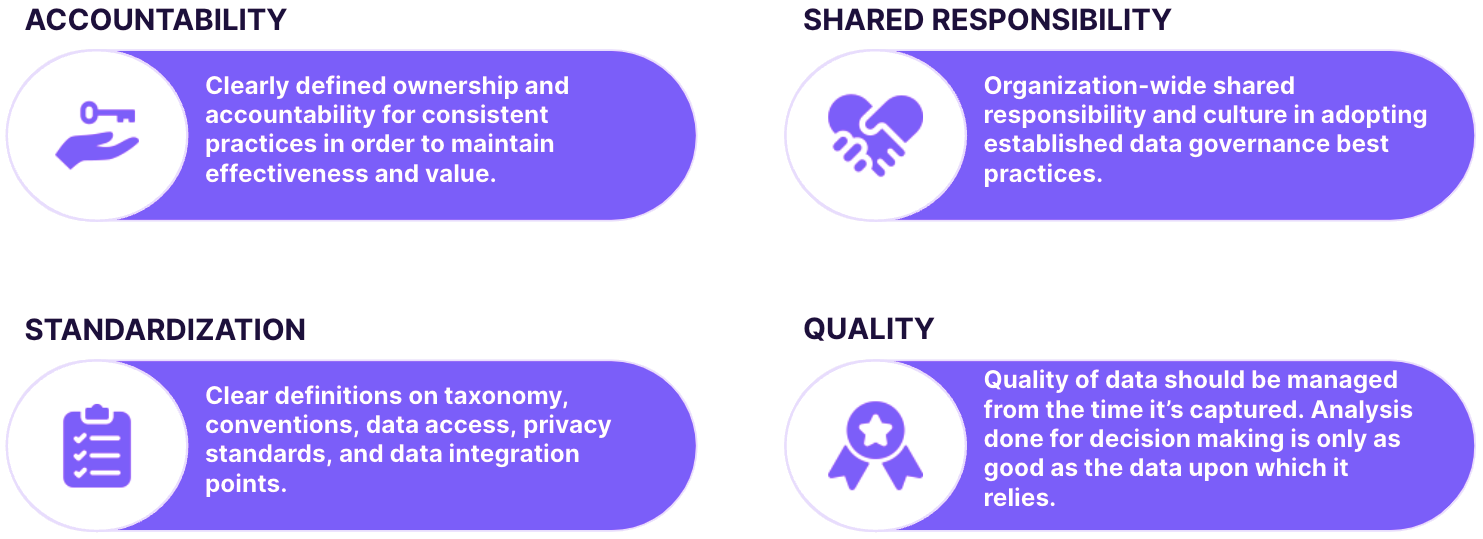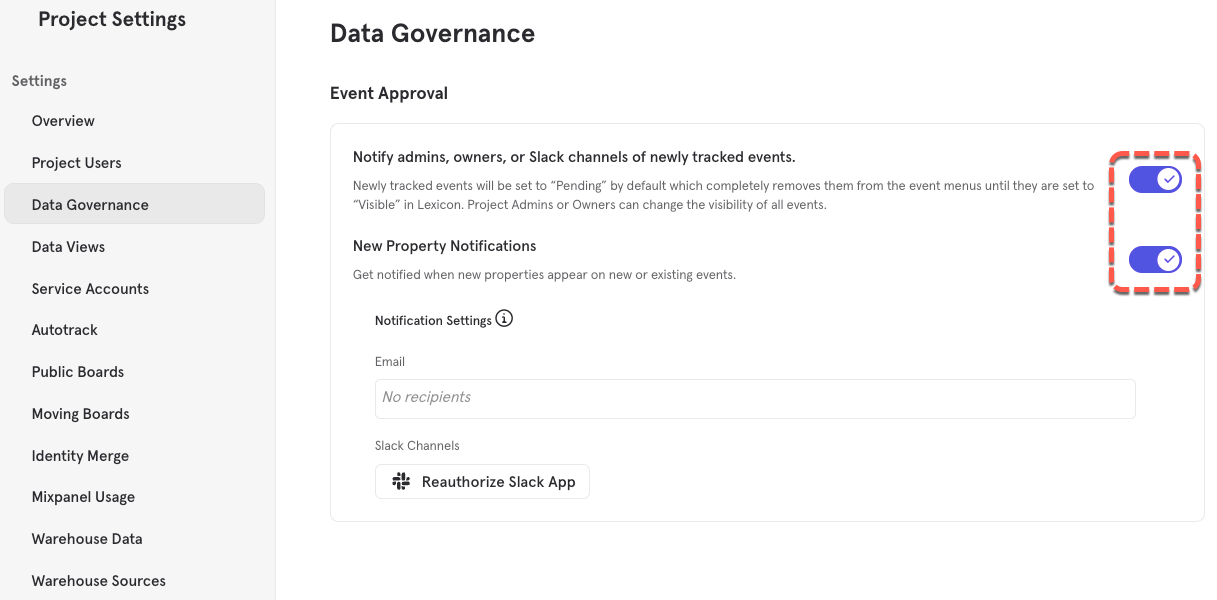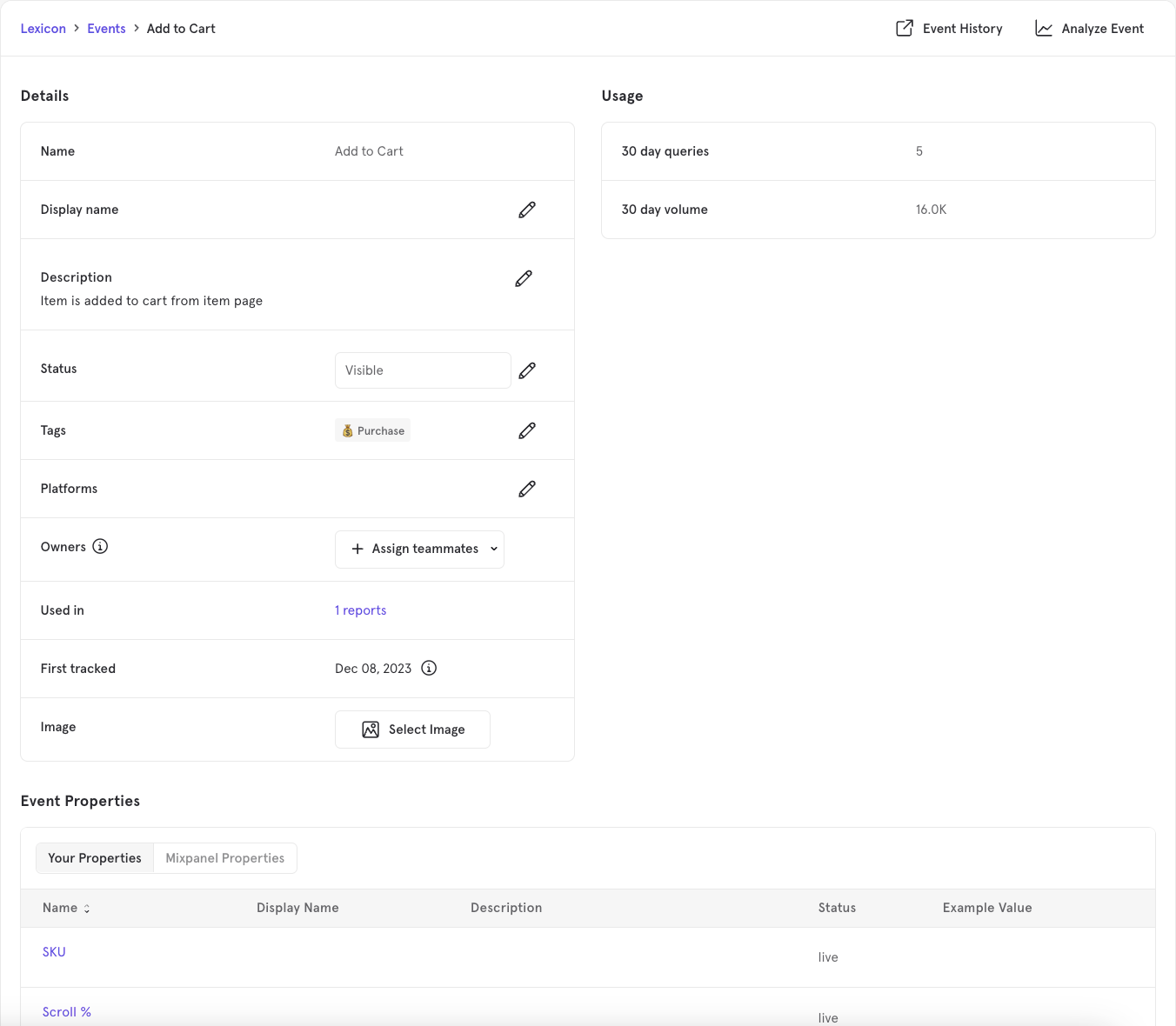Establish Data Governance
Implementing your tracking plan by sending data into Mixpanel and conducting Quality Assurance test is your first step to getting insights about your users' behaviours. Keeping your data in production clean, concise, and consistent as you add more tracking, requires you to establish a data governance framework.
Data governance involves key data stakeholders establishing a methodology, process, or strategy to ensure Mixpanel implementation continues to be consistent, accurate, and trustworthy. It need not be complex, but should focus on the following principles:

Setting up a data governance framework can be as simple as having:
- Ownership: designating an owner or governance team (eg leads from each business unit Product, Marketing, Analytics, Data Science) responsible for this task
- Standards: documenting your standards, conventions, taxonomy, and processes for defining metrics / KPIs and instrumenting your tracking plan
- Controls: establishing review and sign-off processes before rolling out to production to maintain data trust
In this tutorial, we'll cover some tools to help you keep up with data governance controls, as well as, tips on how to fix potential data issues that may fall through the cracks.
Event Approval
Mixpanel's Event Approval feature enables project owners or admins to first review any new events or properties sent to a Mixpanel project before it is released for use. This feature is available to all our Enterprise Plan (opens in a new tab) customers.
You can enable this feature at a project level to receive alerts via e-mail or Slack messages whenever a new event or property is received; thereby, allowing you to take timely appropriate actions. We recommend enabling this for your production project to catch any event or property that may be sent without prior sign-off in development.

For more details, refer to our documentation on Event Approval.
Lexicon: Data Clean Up
Mixpanel's data dictionary is called Lexicon. It contains metadata about your events and properties, as well as, other Mixpanel UI element created along the way, such as Custom Events, Custom Properties, Lookup Tables, and Formulas.

Metadata includes statistical information to help you review events and properties usage, such as:
- Who's the owner of the event?
- Who first / last queried an event and when?
- When was the event first tracked?
- Which reports use the event?
- What is the last 30 days volume against number of queries for an event / property?
Such metadata lets you easily discover the data that is most valuable to your colleagues who are using Mixpanel. It enables you to make a data driven decisions on either further improving tracking for certain journeys or to entirely deprecate any events or properties to mimimize data noise.
Lexicon also includes tools that allow you to fix or manage events and properties that were already ingested into Mixpanel, such as:
- Hiding events and properties that may still be useful, but should not be generally accessible to users
- Dropping events and event properties that are no longer useful
- Merge events and event properties potentially sent with different naming
- Upload Lookup Tables to augment or extend existing tracked properties
- Manage existing Custom Events, Custom Properties, and saved Formulas
- Manage Data Classfications for sensitive properties
For more information about these features, refer to our documentation on Lexicon.
Implementation Monitoring Dashboard
In our QA and Data Audit section, we introduced a Mixpanel Monitoring Dashboard (opens in a new tab) to help you audit your data at a higher-level. You should continue to leverage on this Board to continue monitoring your project by adding additional reports or textual and image elements that document or explain your data governance standards and control processes.
Also check out our other Board Examples especially built by our Customer Success team to help you further improve upon data governance and data troubleshooting.
Was this page useful?